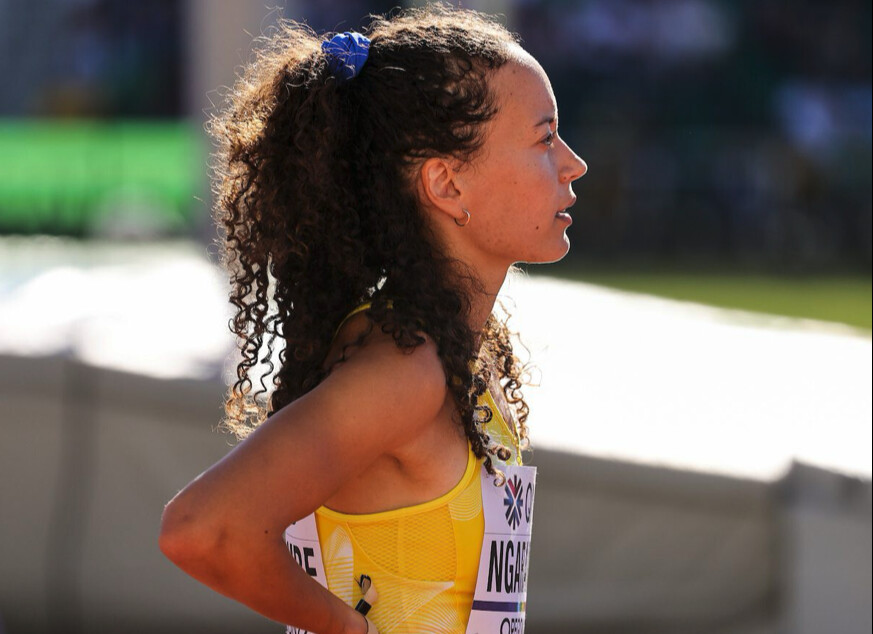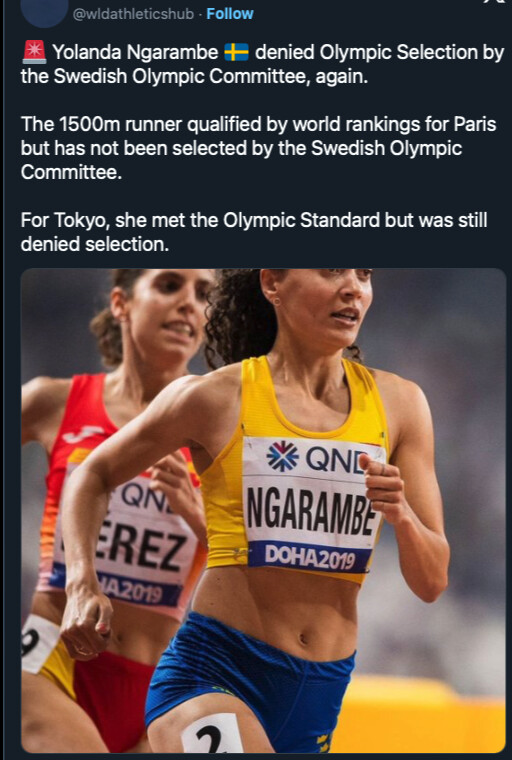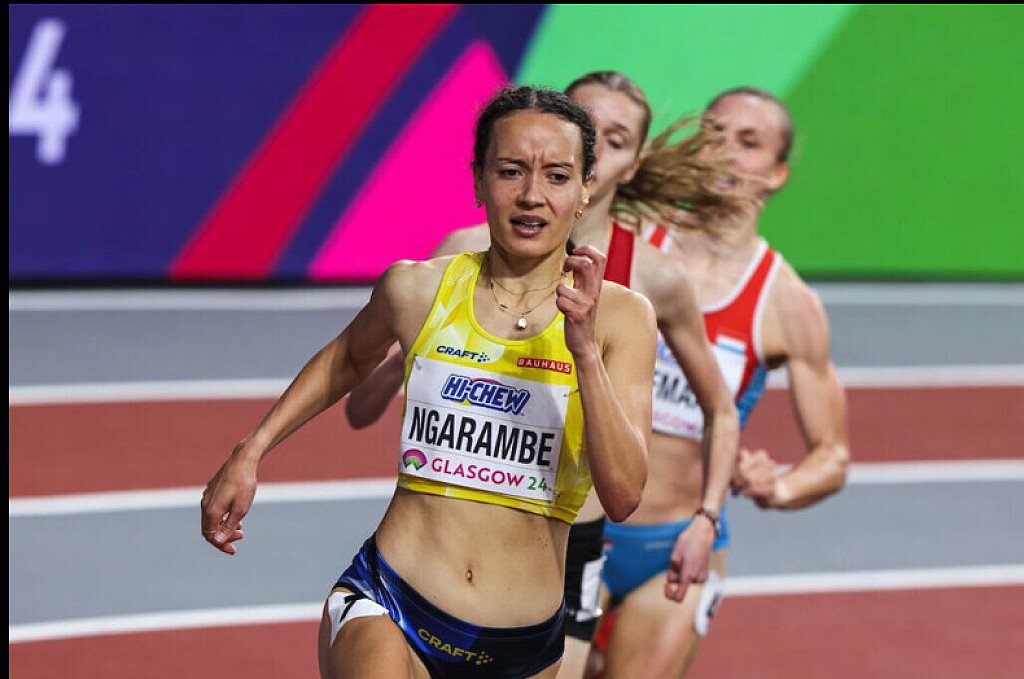Running News Daily
Running News Daily is edited by Bob Anderson. Send your news items to bob@mybestruns.com Advertising opportunities available. Train the Kenyan Way at KATA Kenya and Portugal owned and operated by Bob Anderson. Be sure to catch our movie A Long Run the movie KATA Running Camps and KATA Potato Farms - 31 now open in Kenya! https://kata.ke/
Index to Daily Posts · Sign Up For Updates · Run The World Feed
Olympic heartbreak: Sweden’s difficult selection policy bars top athletes
Swedish middle-distance runner Yolanda Ngarambe thought she’d done everything she could to qualify for Paris 2024 in the women’s 1,500m. She won her country’s national championship and was ranked inside the top 35 in the world in her event, yet the Swedish Olympic Committee (SOK) decided not to select her; this marks her second consecutive Olympic snub.
Ngarambe isn’t the only Swedish athlete frustrated with the country’s selection policy, which differs from the World Athletics policy. There are several others, including 3,000m steeplechasers Simon Sundström and Emil Blomberg, who both sat in qualification spots via the World Athletics rankings but were passed over for selection.


“This will be my second time qualifying for the Olympics and my second time being denied selection by the Swedish Olympic Committee,” Ngarambe wrote. “I ran the Olympic standard for Tokyo 2020 and qualified via the rankings for Paris. Make it make sense.”
How Olympic selection works
For Paris 2024, World Athletics introduced a new selection policy with 50 percent of qualification places based on achieving the entry standard for an event within the qualification period (July 1, 2023, to June 30, 2024) and the other 50 percent based on the World Athletics rankings.
World Athletics’ qualification policy is a strict standard that all countries must follow, but some nations have implemented their own rules to ensure they are only sending athletes who are a threat to reach a final or contend for a medal.
According to Sveriges Friidrottsförbundet, for an athlete to be considered for Olympic selection, they must have achieved a top 12 result at a major championship (i.e., Olympic Games, World Championship or European Championship). Bigger meets, such as the Tokyo Olympics or World Athletics Championships, carry more weight. Even athletes who don’t meet these exact quotas may be selected if they have multiple results within a certain performance range, especially those close to the qualifying limit.
Sweden currently has only three female athletes competing in track events, plus a small track and field team of 22 athletes. (Canada is sending a team of 48.)
Ngarambe’s case
In Ngarambe’s case, the women’s 1,500m event had a strict performance requirement set by the SOK, between 4:02.53 and 4:04.33. Her season’s best of 4:05.19 stands outside the nomination range, so despite having a top-10 finish at the 2024 European Championships in Rome, she was not selectable under their criteria.
Sweden isn’t the only country that has implemented tougher qualifying standards. UK Athletics has been criticized for adopting the same “Olympic final or bust” selection expectation, which several athletes have spoken out against, saying it’s killing the sport of track and field in the U.K.
UK Athletics chief executive Jack Buckner criticized the organization’s former qualification marks, calling them “too soft” for the 2019 World Championships and 2020 Olympic Games. In an effort to increase Great Britain’s medal haul, UK Athletics has moved away from sending bigger squads and focused solely on the country’s best track and field stars. “You need to really focus on the big hitters,” said Bucker when questioned about the more difficult standards last year. “We could have a list of six to 10 names, and we need to be all over them. We need to identify where the medals are coming from and have the right resources in place.”
For Ngarambe, who will be 33 later this year, the Paris Games was her last opportunity to represent her country at an Olympic Games. “I’m now a two-time Olympic qualifier who has been denied selection twice by the Swedish Olympic Committee,” she says.
by Running Magazine
Login to leave a comment




